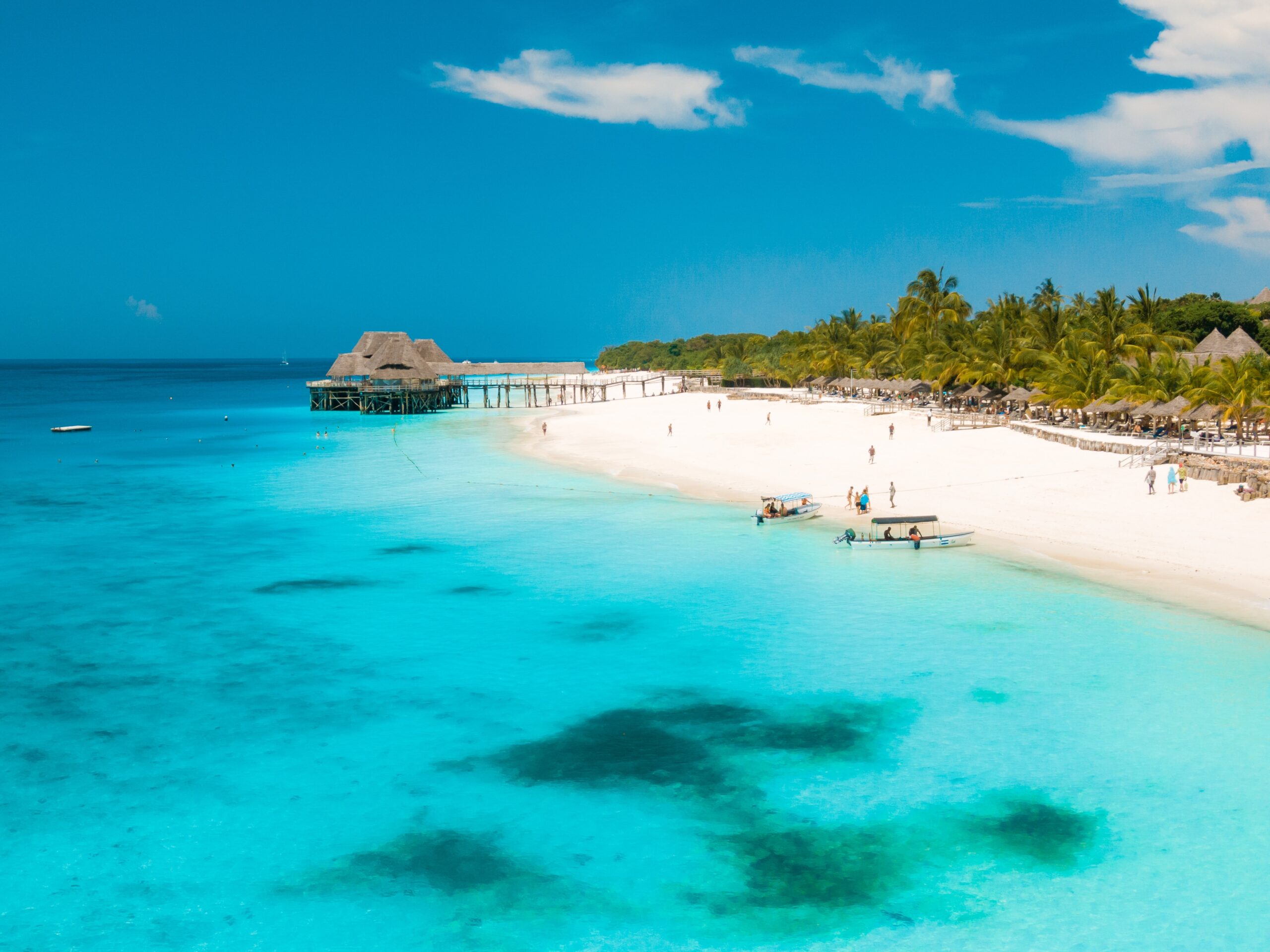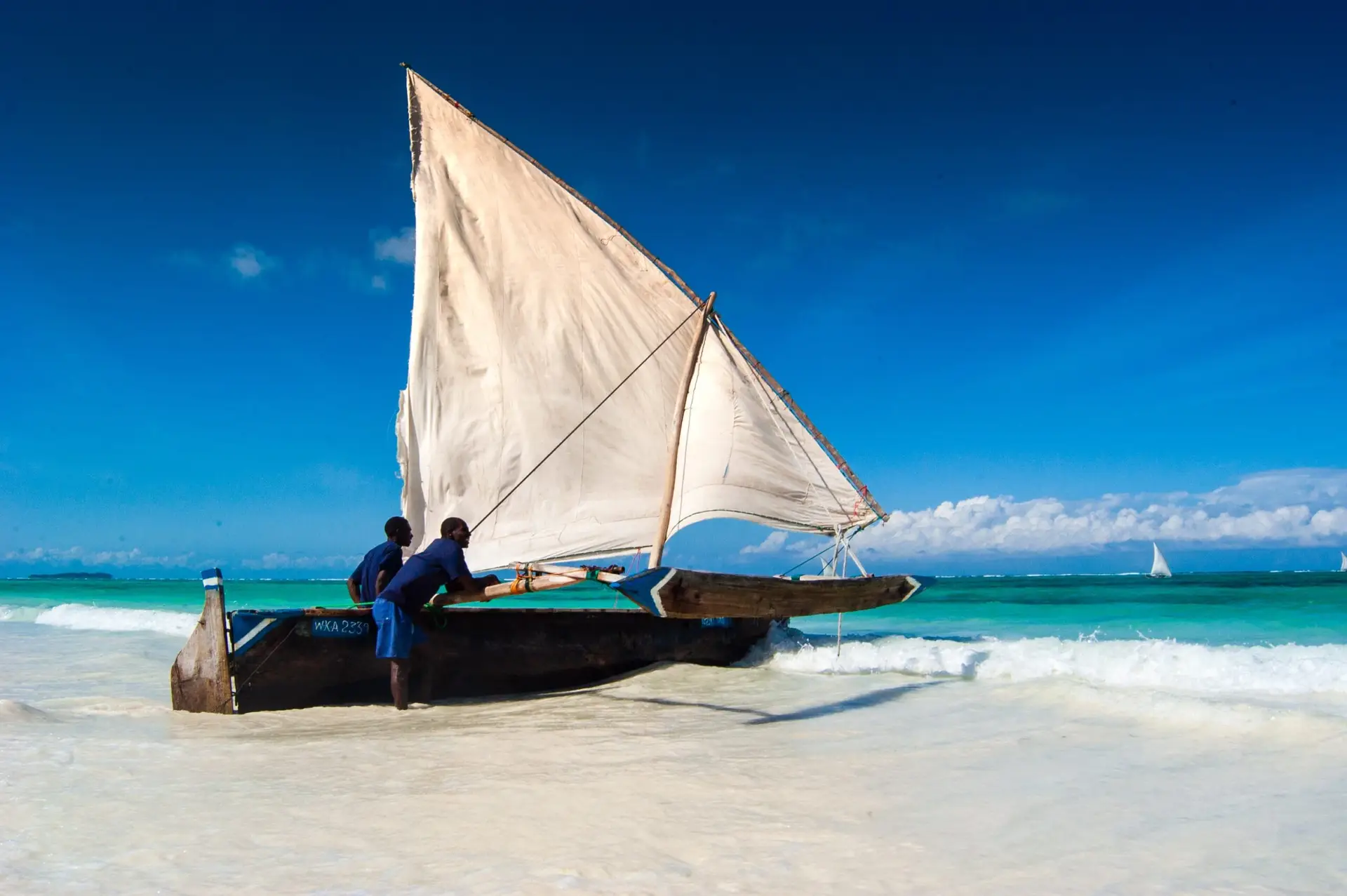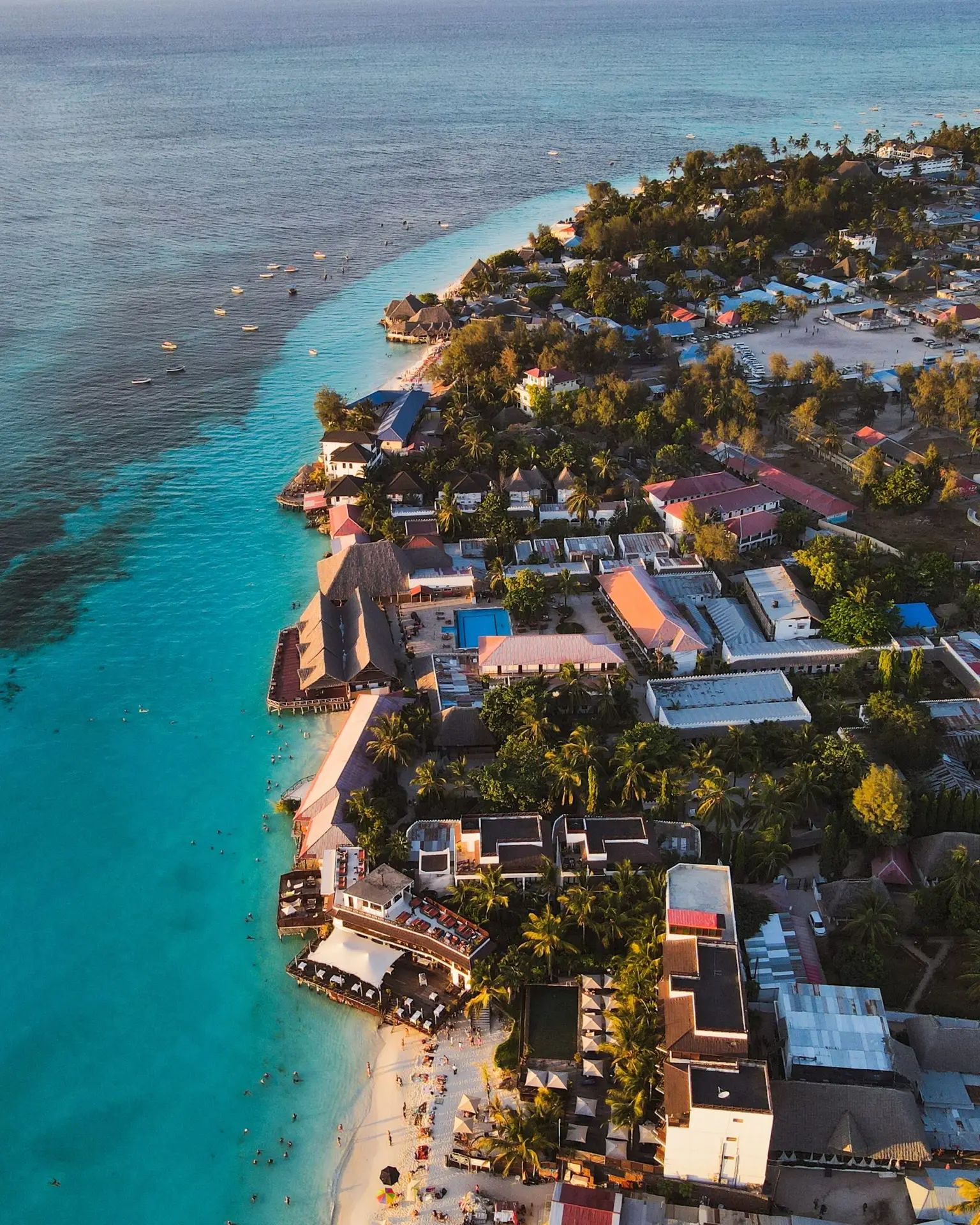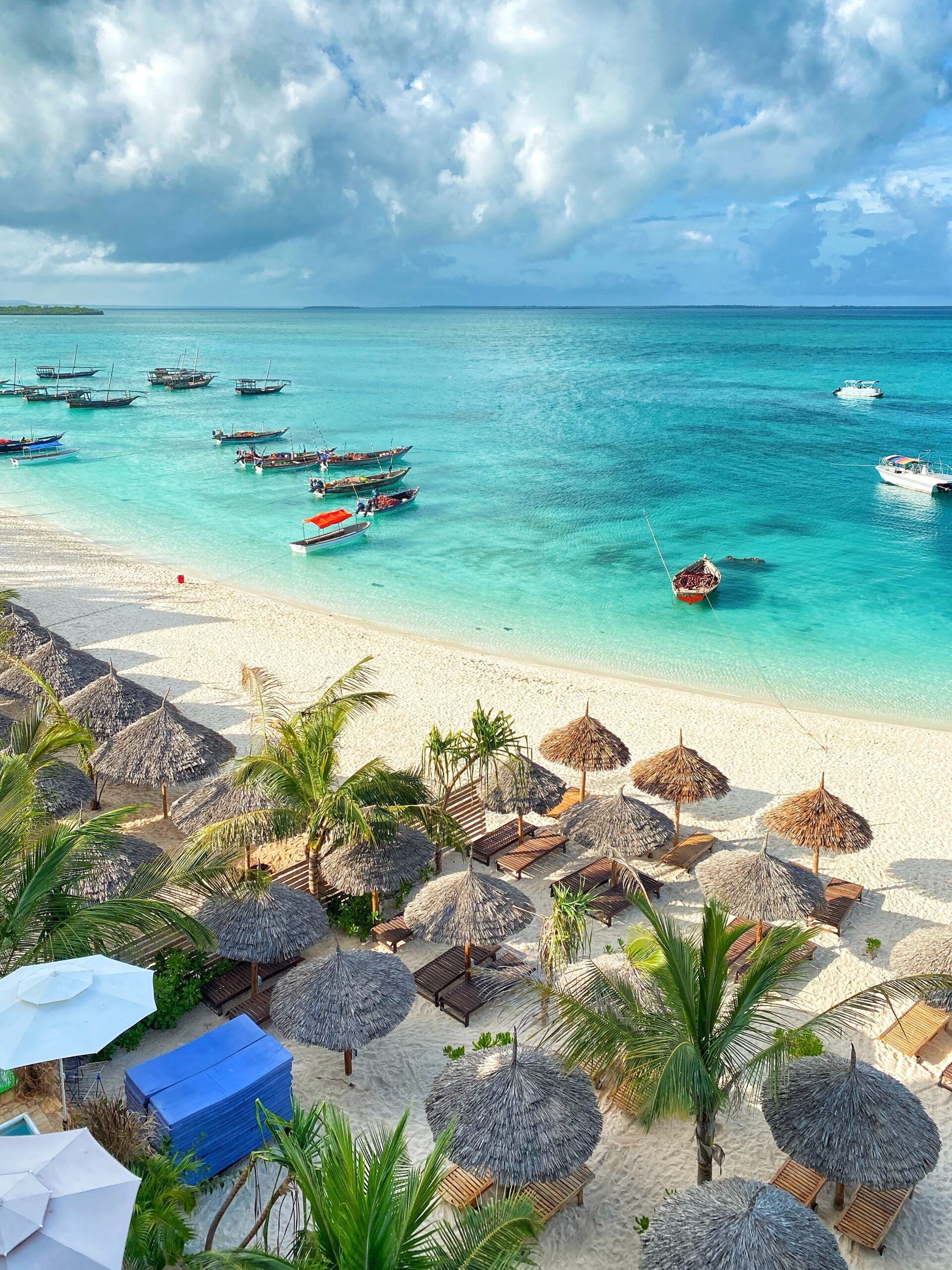Climate in Zanzibar
- Lying just south of the equator, Zanzibar the Spice Island boasts a tropical climate that makes it a paradise for beach enthusiasts. With its year-round warm and humid weather, this exotic island promises an unforgettable getaway. Whether you’re looking to relax on its pristine beaches, dive into thrilling water activities, or immerse yourself in its vibrant cultural heritage, Zanzibar the Spice Island offers the perfect escape.
Visa and entry requirements
- If you’re planning a trip to Zanzibar, it’s essential to be aware of the visa requirements and necessary travel documents. Here’s everything you need to know to ensure a smooth entry into this tropical paradise:
-
- 1. Visa on Arrival: Convenience at Zanzibar International Airport
-
- Most visitors can easily obtain a visa upon arrival at Zanzibar International Airport. The visa fee is US$50 per person, payable in cash. However, it’s important to note that American citizens are required to pay US$100 for their visas. This straightforward process eliminates the need for obtaining a visa in advance, saving you time and effort.
-
- 2. Alternatives: Visas at Other Airports
-
- In addition to Zanzibar International Airport, you can also obtain visas upon arrival at two other major airports in Tanzania: Dar es Salaam and Kilimanjaro International Airports. These alternative entry points provide flexibility and convenience for travelers, allowing them to choose the most suitable arrival option based on their travel plans.
-
- 3. Essential Travel Documents: Passport Validity and Pages
-
- To enter Zanzibar, all visitors must possess a valid passport. It’s crucial to ensure that your passport remains valid for at least six months beyond your planned departure date. This requirement guarantees that your passport will be valid throughout your stay on the island.
-
- Moreover, it’s necessary to have at least two clear pages in your passport. These pages are essential for immigration authorities to affix the visa and entry/exit stamps. Ensure that your passport meets these criteria to avoid any complications during your journey.
Money
- When traveling to Zanzibar, it’s important to familiarize yourself with the local currency and payment options available. Here’s what you need to know about currency, US dollar acceptance, and credit card payments on the island:
-
- 1. Tanzanian Shilling: The Official Currency
-
- The official currency of Zanzibar, as well as Tanzania as a whole, is the Tanzanian Shilling (TZS). It’s advisable to have some local currency on hand for smaller expenses, such as taxis, local markets, and smaller establishments that may not accept US dollars. You can exchange your currency for Tanzanian Shillings at banks, exchange offices, or authorized currency exchange bureaus.
-
- 2. US Dollar Acceptance: Widely Accepted in Hotels, Restaurants, and Bars
-
- US Dollars are widely accepted in Zanzibar, particularly in larger establishments such as hotels, restaurants, and bars. This is convenient for travelers who prefer to use US currency for their transactions. However, it’s important to note that by law, visitors are required to settle hotel bills in US dollars or other hard currencies. In some smaller establishments, this requirement may be waived, allowing you to pay in Tanzanian Shillings or US dollars.
-
- 3. Credit Card Payments: Considerations and Possible Commissions
-
- If you choose to pay by credit card in Zanzibar, it’s essential to be aware of potential additional charges. Some hotels and resorts may apply a commission of up to 6% for credit card payments. This commission is typically added to the total amount of your bill. Therefore, it’s advisable to inquire about any potential commissions before making your payment. Additionally, it’s always a good idea to inform your credit card company of your travel plans to ensure seamless transactions and prevent any potential issues with card authorization.
Language
- The national language is Kiswahili, though English is widely spoken.
Health and safety
- When planning your visit to Zanzibar, it’s crucial to prioritize your health and safety. Here are some essential guidelines to ensure a memorable and worry-free experience on this beautiful island:
-
- 1. Yellow Fever Vaccination and Health Precautions
-
- Some visitors to Zanzibar may be required to present a Yellow Fever vaccination certificate upon entry. It’s recommended to check the specific vaccination requirements and consult with a travel doctor for personalized health advice. Additionally, considering the risk of malaria in certain areas, it’s advisable to take appropriate malaria prophylaxis as prescribed by your healthcare professional. Taking these precautions will help protect your health and enhance your overall travel experience.
-
- 2. Hydration and Food Safety
-
- To maintain good health during your stay in Zanzibar, it’s important to stay hydrated and consume safe food. Drink bottled water to ensure you have a reliable source of clean drinking water. Avoid consuming uncooked foods, particularly fruits and vegetables that may have been washed in untreated water. Opt for cooked meals and fruits that you can peel yourself to minimize the risk of waterborne illnesses.
-
- 3. Protection against Sunstroke and Heat Exhaustion
-
- Given Zanzibar’s tropical climate, it’s crucial to protect yourself from sunstroke and heat exhaustion. Stay hydrated by drinking enough water throughout the day, especially when spending time under the sun. Wear lightweight, breathable clothing that covers your skin, and apply a high factor sunscreen to exposed areas to shield yourself from harmful UV rays. By taking these precautions, you can enjoy the island’s beauty without compromising your well-being.
Cultural considerations
- Zanzibar has a long history of religious tolerance and although the islands are 98% Muslim, alcohol and tobacco are freely available. Show respect for the culture of Zanzibar by dressing modestly and refraining from public displays of affection. When walking in Stone Town or villages, women should wear clothes that cover their shoulders and knees. Men should not walk bare-chested. On the beaches, swimwear is acceptable, but topless sunbathing is not.
-
- During the fast of Ramadan, it is considered the height of bad manners to eat and drink in public places, or while walking down the street. Non- Muslims should not enter mosques unless specifically invited to do so.
-
- There are amazing photographic opportunities in Zanzibar, but it’s a courtesy to ask people if you want to take a picture of them.






